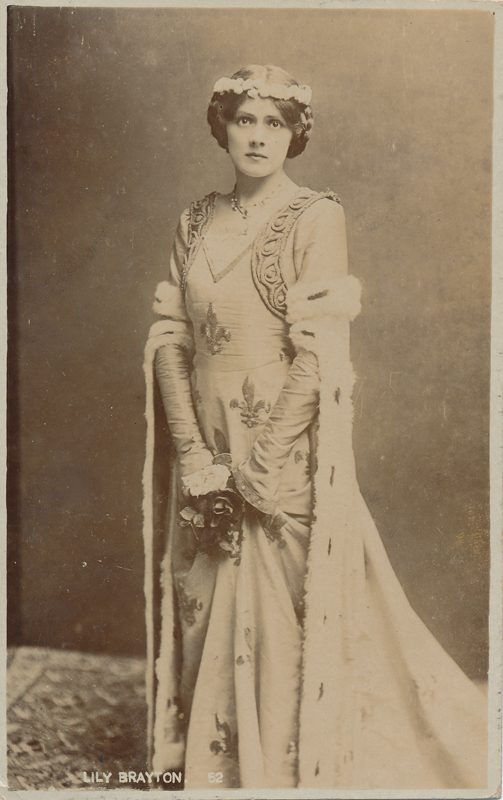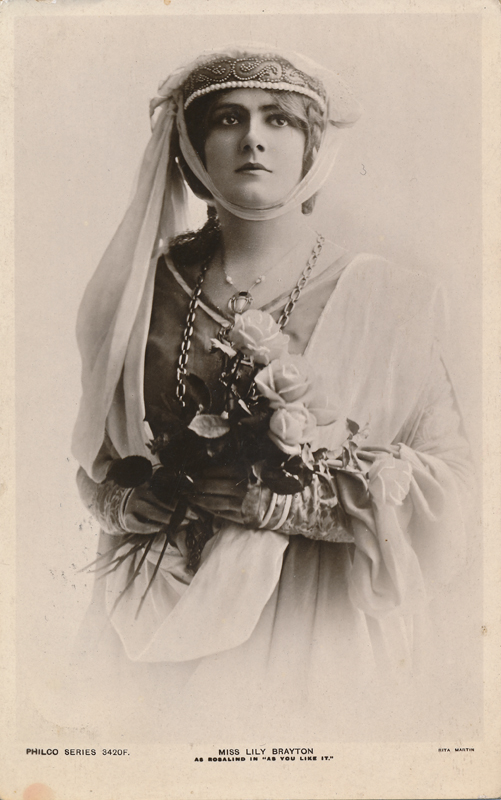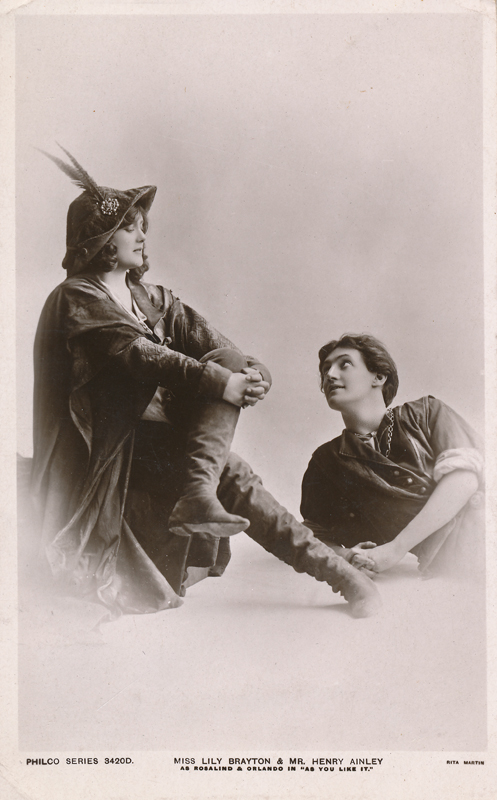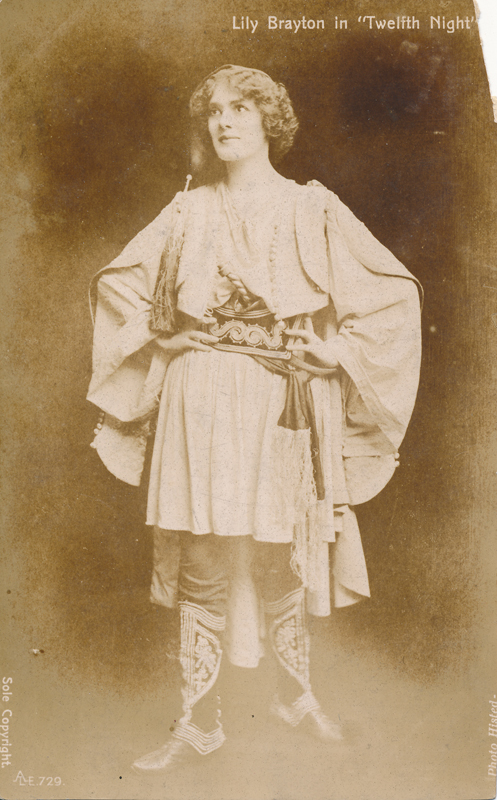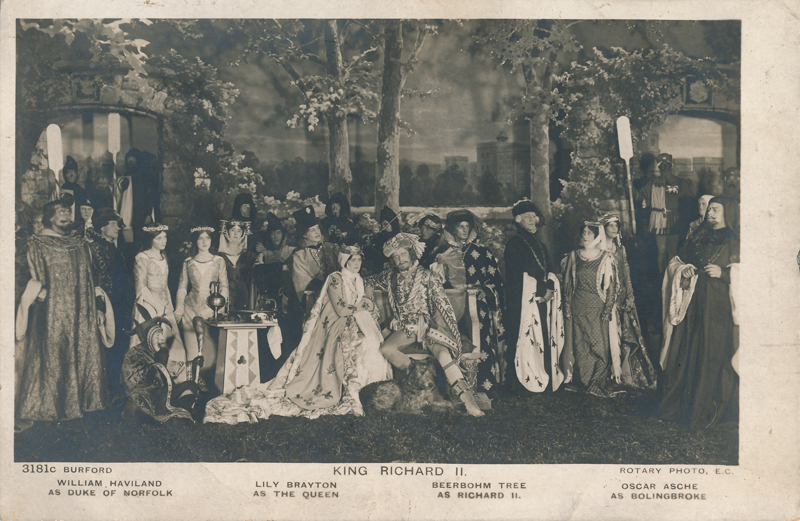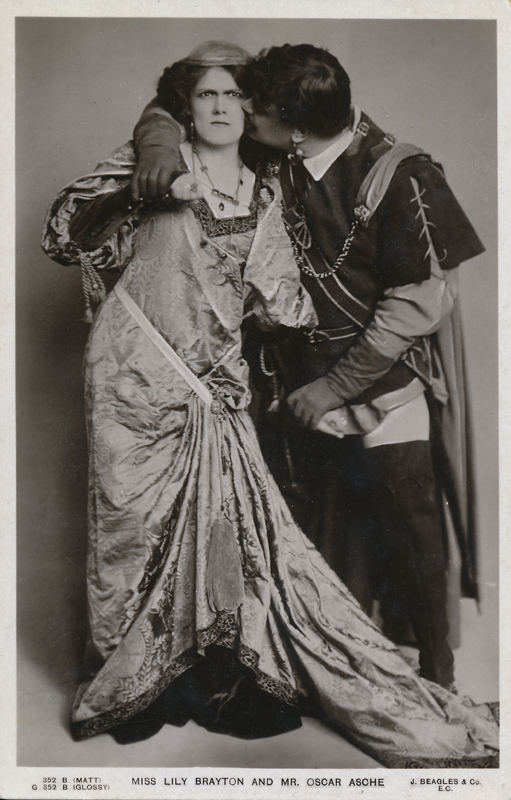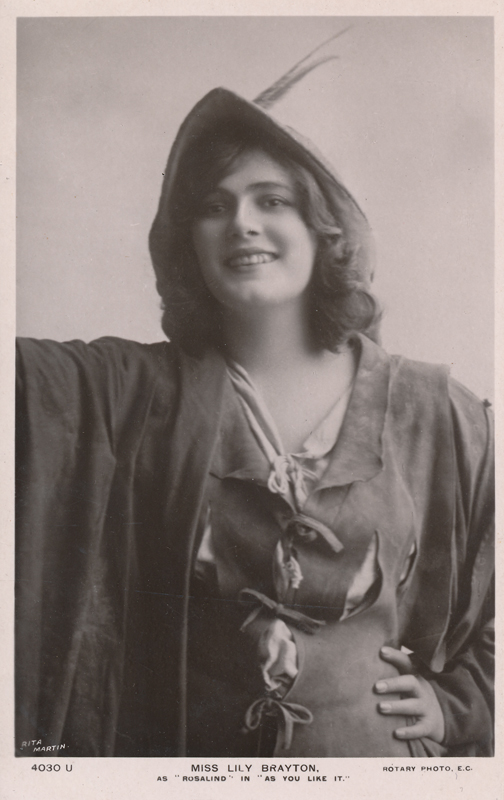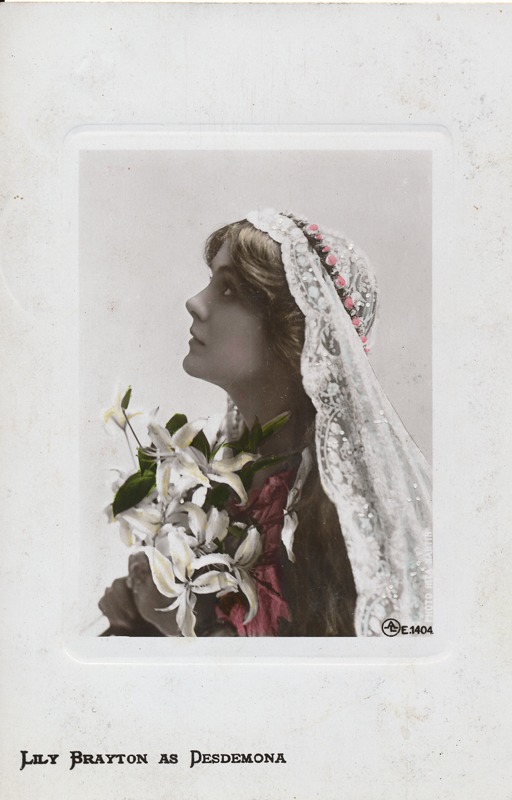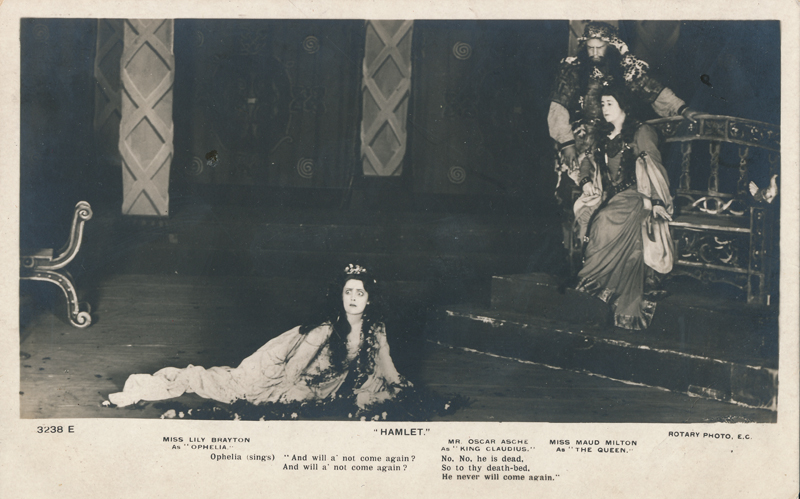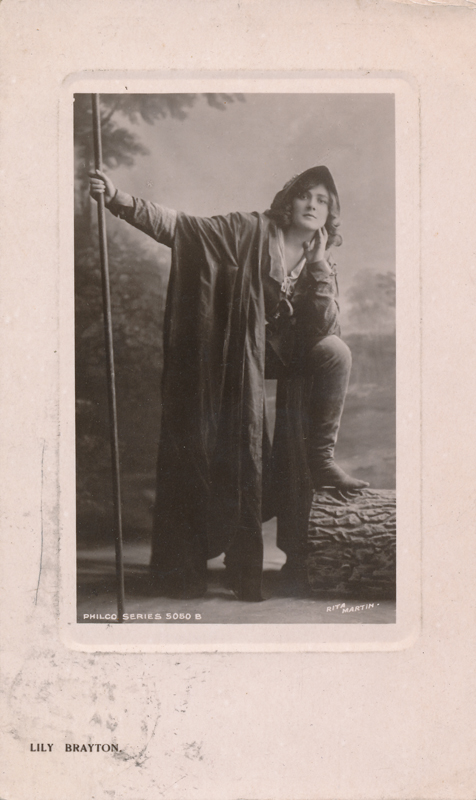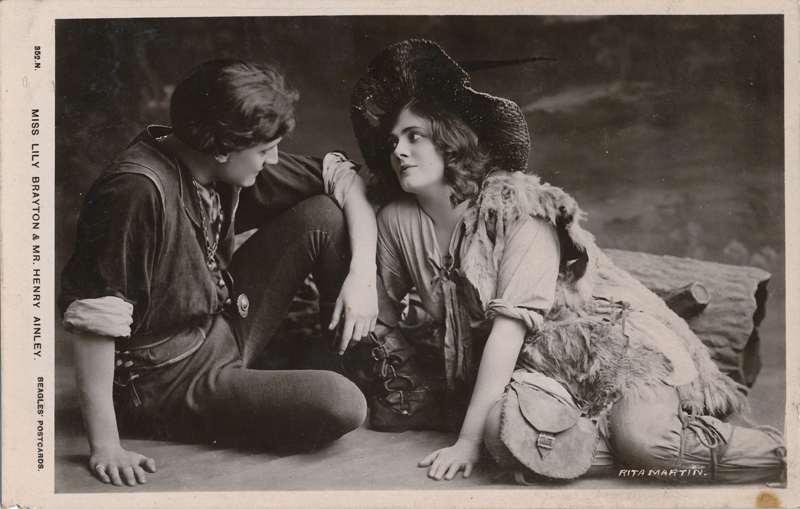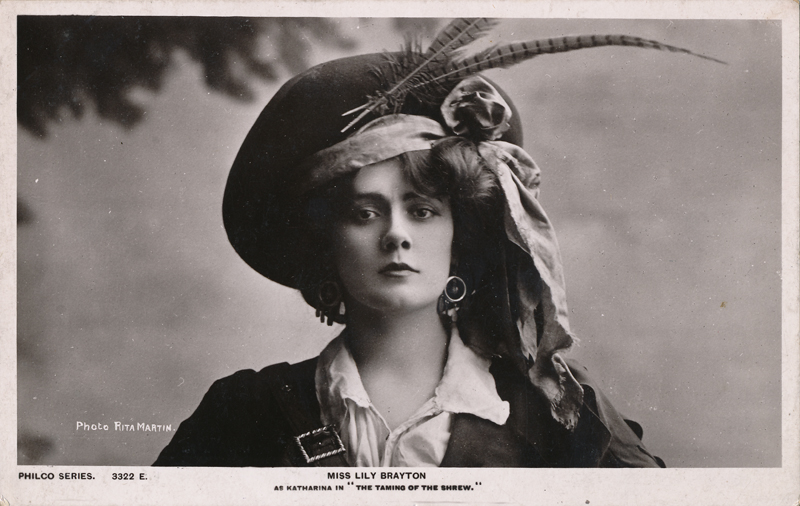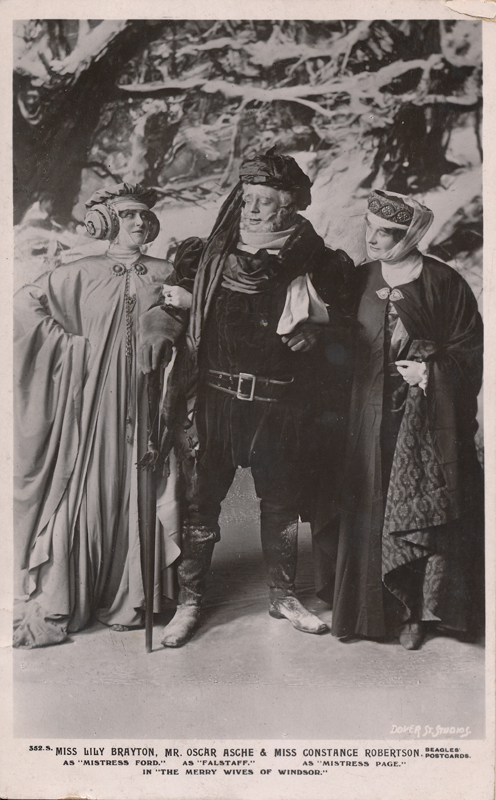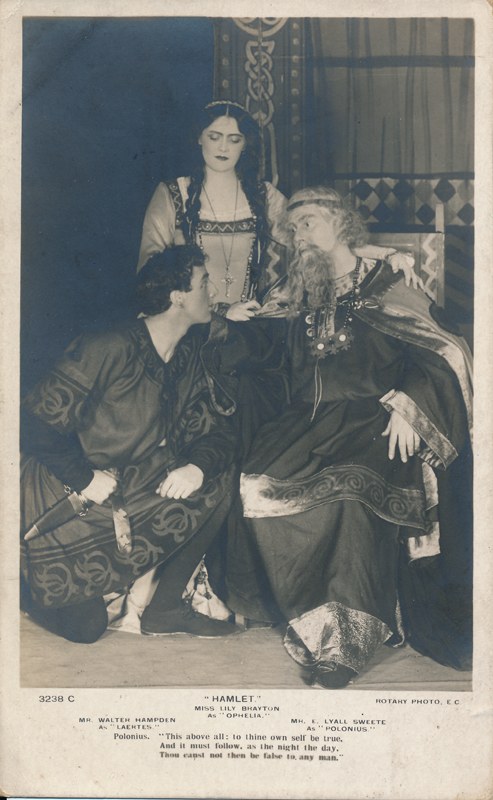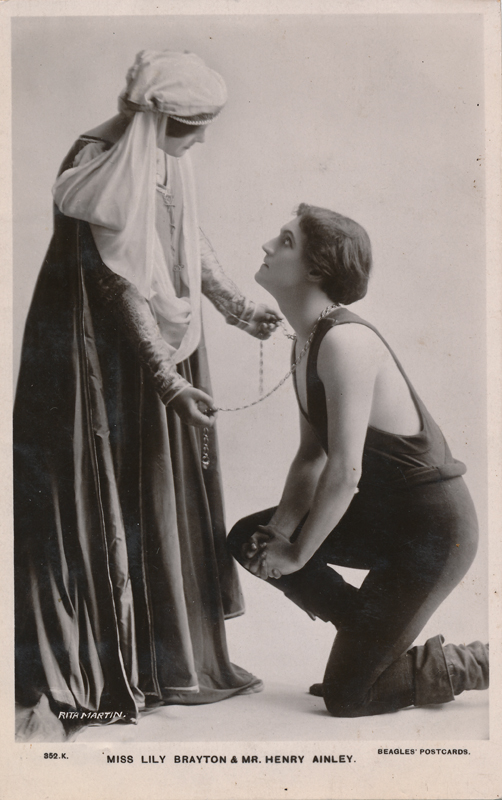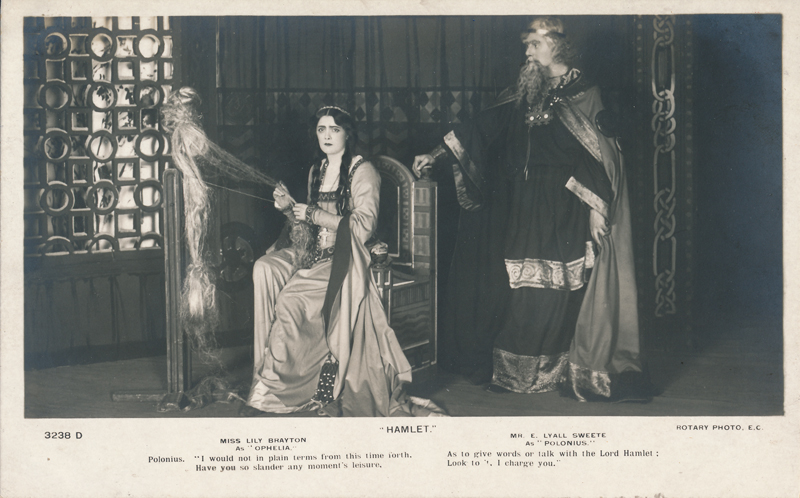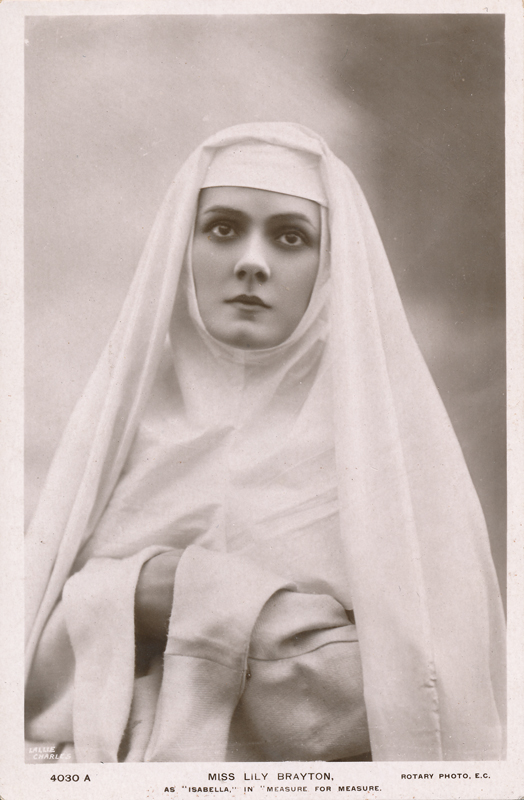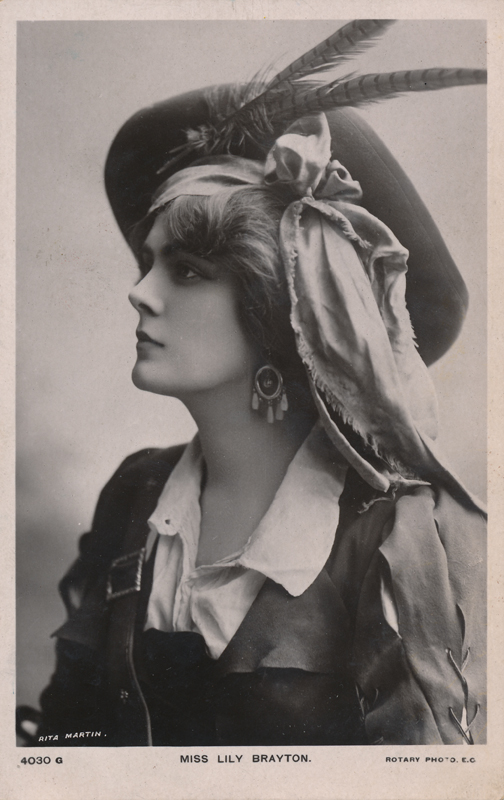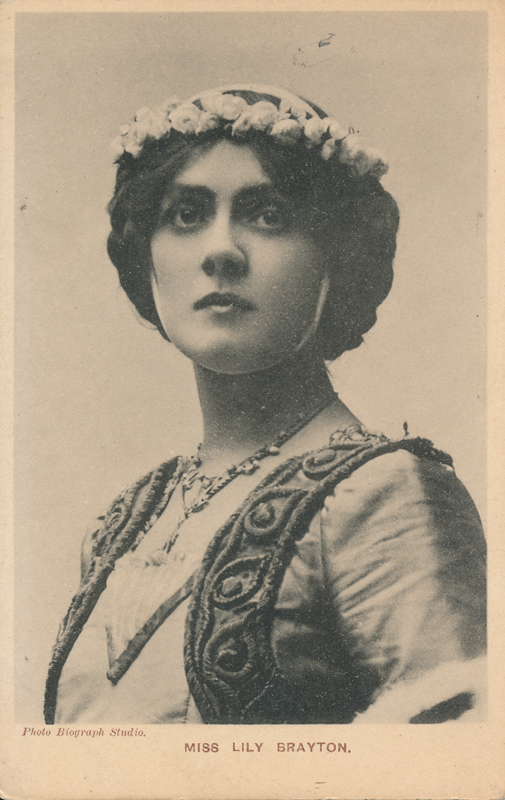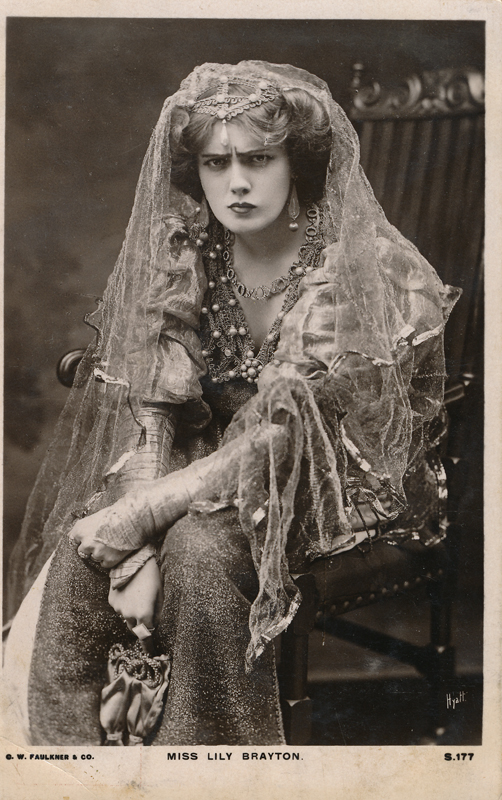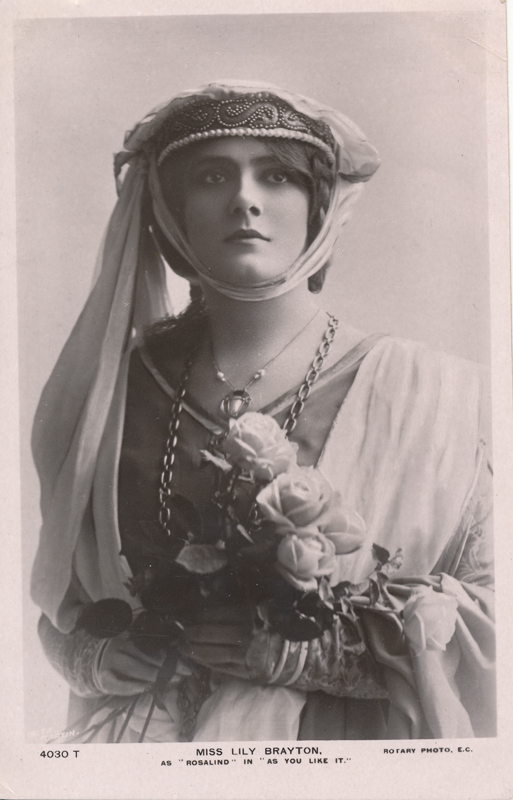(1876-1953)
Elizabeth “Lily” Brayton was born in England on June 23, 1876. She made her first stage appearance in 1896 with Frank Benson’s company in Richard II (see anecdote below). She remained with the troupe for some time, so as a “Bensonian” she played many roles in the plays of Shakespeare, appearing several seasons in the Stratford Shakespeare Festival. Her last appearance on the stage was as Portia in Julius Caesar. She married fellow actor Oscar Asche in 1898 and they joined Beerbohm Tree‘s company in 1902. In 1907, she and her sister Agnes appeared in a production of The Taming of the Shrew, as Kate and Bianca, respectively, with the Oxford Union Dramatic Society.
She and her husband entered joint-management later in life, managing the Adelphi Theatre and Her Majesty’s Theatre, both in London. While managing, they produced As You Like It, Othello, and The Taming of the Shrew before going on tour to acclaim in Australia and New Zealand. Brayton played Rosalind, Desdemona, and Katerina respectively. Asche and Brayton made history in 1916 as the former wrote a play entitled Chu-Chin-Chow in which he played the lead, Abu Hasan. The play broke all records when it ran for 2,238 performances. Brayton took the part of Zahrat-al-Kulub and performed it almost two thousand times during the run. She died in England in 1953.
Brayton herself explains her early days as an actor in a 1919 published interview with the The Advertiser (Adelaide, Australia):
Technically speaking my first appearance was as a super, for I walked on in Twelfth Night the evening of the same day I arrived in Manchester. In the repertoire of that week were also included Othello, The Taming of the Shrew, and Richard II, and I appeared in all of them. It was in the last named that I spoke my first line as one of the ladies in attendance upon the queen, whom I afterwards played both with Mr. Benson and with Sir Herbert Tree at His Majesty’s. My line was, I believe, “Madam, we will play at bowls.” Unimportant as the line was, I think I felt an importance which has never been equalled when I have been playing the most onerous leading part.

